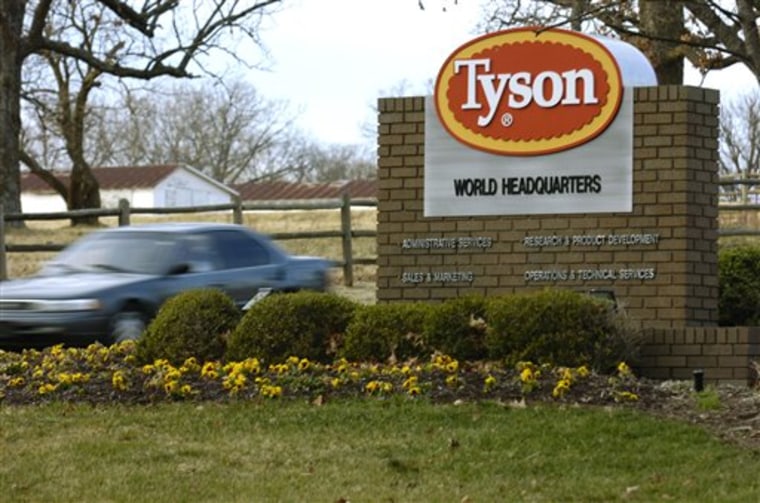Tyson Foods Inc., the world's largest meat producer, said Tuesday its tracking surveys have found no drop in U.S. consumer confidence in poultry despite the spread in other parts of the world of a deadly strain of bird flu.
To make sure things stay that way, Tyson is distributing information about safety precautions that it is taking together with the U.S. poultry industry to detect and stamp out the flu virus if it makes it to North America.
Tyson invited reporters to the lab at its world headquarters in northwest Arkansas to lay out those steps and to reiterate a point made by the World Health Organization, that even infected birds pose no threat to the people who eat them if the meat is properly cooked.
John Lea, Tyson's chief development officer, said the company has been surveying consumers weekly since last fall to see if they plan to buy more, less, or the same amount of poultry based on what they've heard about bird flu overseas.
"The answer is that that number has been staying very constant, that the number of people planning on eating less is not increasing," Lea told reporters.
The H5N1 strain of bird flu has spread from Asia to Africa and Europe and led to the deaths of millions of animals, but hasn't appeared in North or South America. It's killed at least 113 people who lived close to birds.
Tyson said its 6,700 contracted poultry farms in the U.S. have been under "code yellow" precautions for several months, its second highest stage of security before code red, which would be a virtual lockdown in health emergencies.
Those "yellow" precautions include banning nonessential visitors from the farms, disinfecting vehicles coming in and out and testing a sample of every flock before they're sent to the slaughter.
